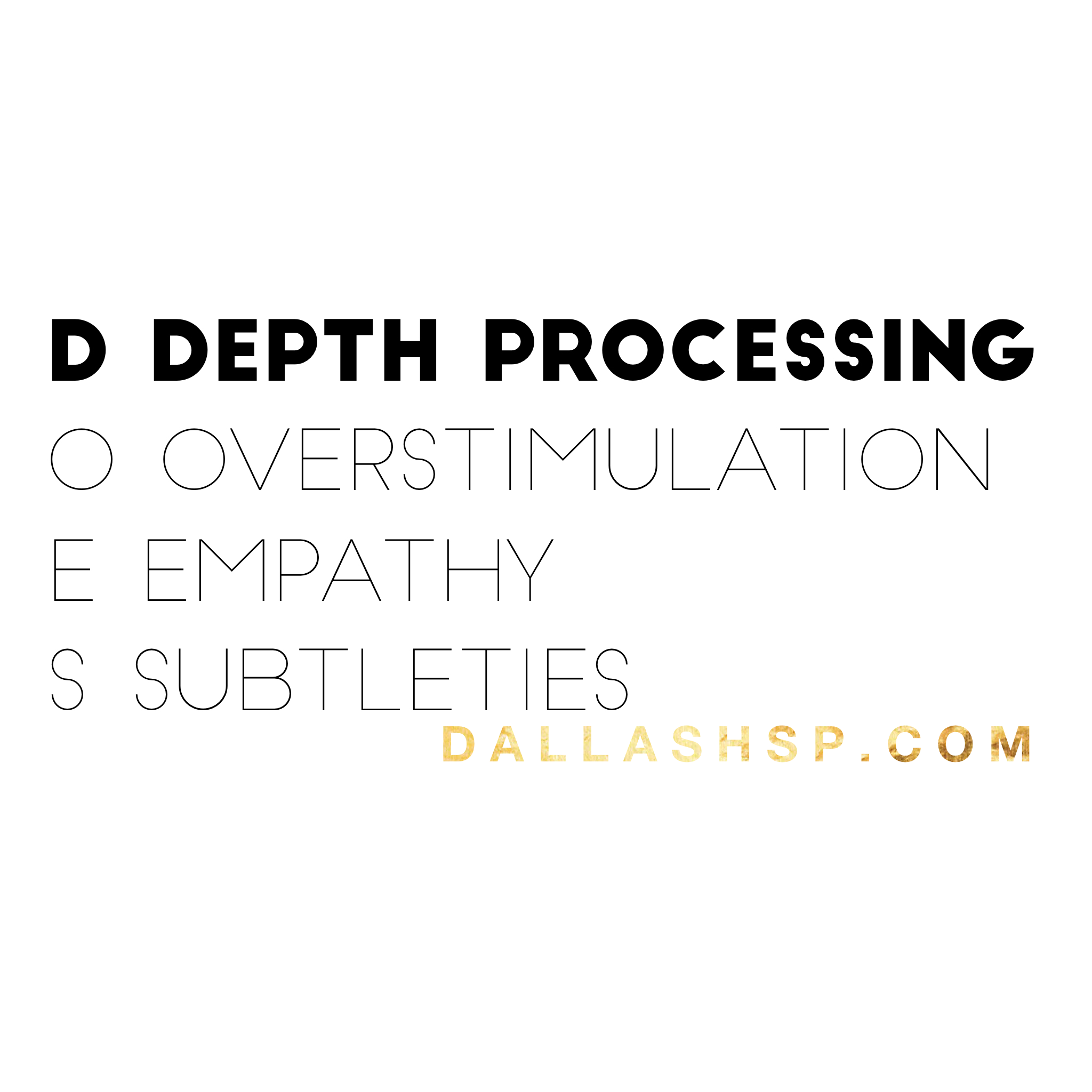What does it mean to be a highly sensitive person?
Dr.
Elaine Aron first discovered the normal trait of sensitivity and
explains it in detail in her book, The Highly Sensitive Person. Last
year, the film Sensitive, The Untold Story, featuring Alanis Morrissette, was release and is
available for viewing on VHX. I encourage you to watch it!
Dr. Aron describes the personality trait using the acronym DOES. The list of examples below are just some of the normal reactions of a sensitive person. There are almost limitless examples of how the trait is expressed and no two HSPs are exactly alike.

Personality Traits of a Highly Sensitive Person (HSP)
by Dr. Elaine Aron
- Aware of subtleties in the environment
- Affected by other people’s mood
- Sensitive to pain
- Sensitive to the effects of caffeine
- Easily overwhelmed by things like bright lights, strong smells,or sirens close by
- Rich,complex inner life
- Uncomfortable by loud noises
- Deeply moved by the arts or music
- Conscientious
- Startle easily
- Avoids violent movies and TV shows
- Uncomfortable, some describe as an electric buzz feeling, when a lot is going on around you, e.g. parties or crowded places
- Hunger creates a strong reaction, disrupting concentration or mood
- As a child, parents or teachers viewed you as sensitive or shy
For a full self-test go to hsperson.com. Source: Dr. Elaine Aron, hsperson.com
Highly Sensitive Teens
 Highly sensitive teens need more education and coaching to help them with identity development. On average, 80% of the kids in their school and social environment will not have their personality trait. HSP teens often feel different because they are effected differently by violent shows, competition and loud parties. HSP teens enjoy having quieter, quality relationships with less friends. They are less likely to be part of a group and may feel left out or lonely at times. Highly sensitive teens need more education and coaching to help them with identity development. On average, 80% of the kids in their school and social environment will not have their personality trait. HSP teens often feel different because they are effected differently by violent shows, competition and loud parties. HSP teens enjoy having quieter, quality relationships with less friends. They are less likely to be part of a group and may feel left out or lonely at times.
HSPs report having higher self-esteem after learning about their trait The Teen Personality Clinic is a series of 3 one-to-one sessions for your teen with a HSP trained professional. Your teen will learn the strengths of the highly sensitive trait and ways to manage overstimulation. Email for more information or call 214-520-4141.
|
|
|